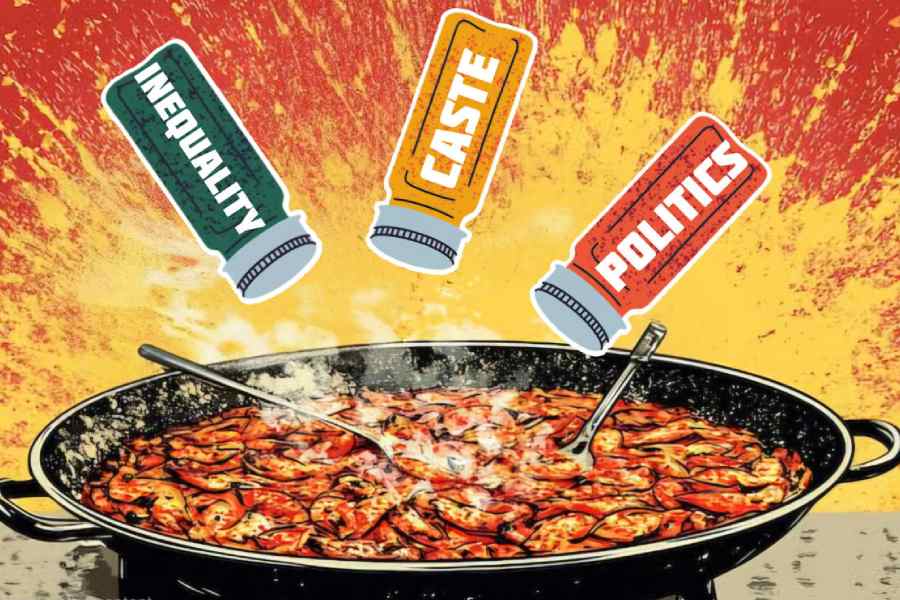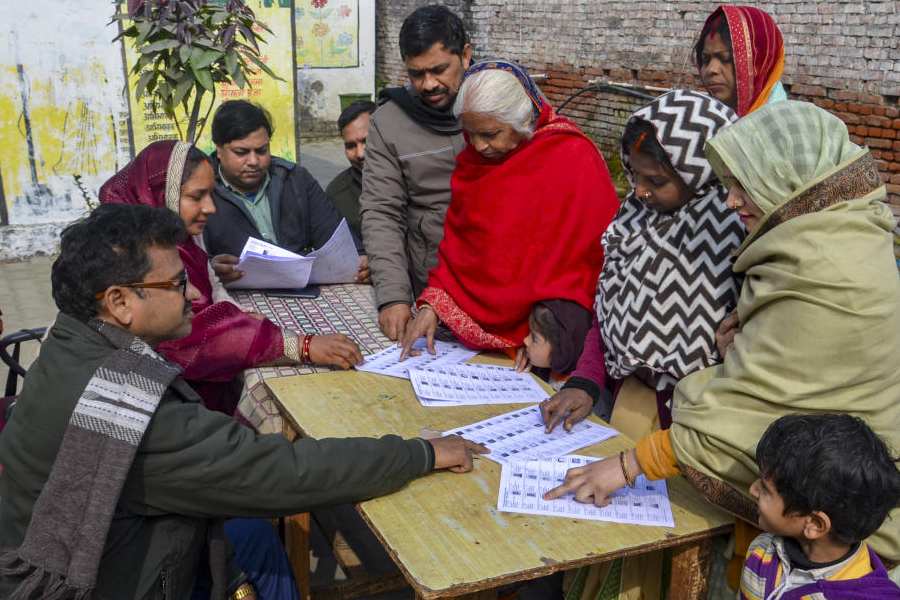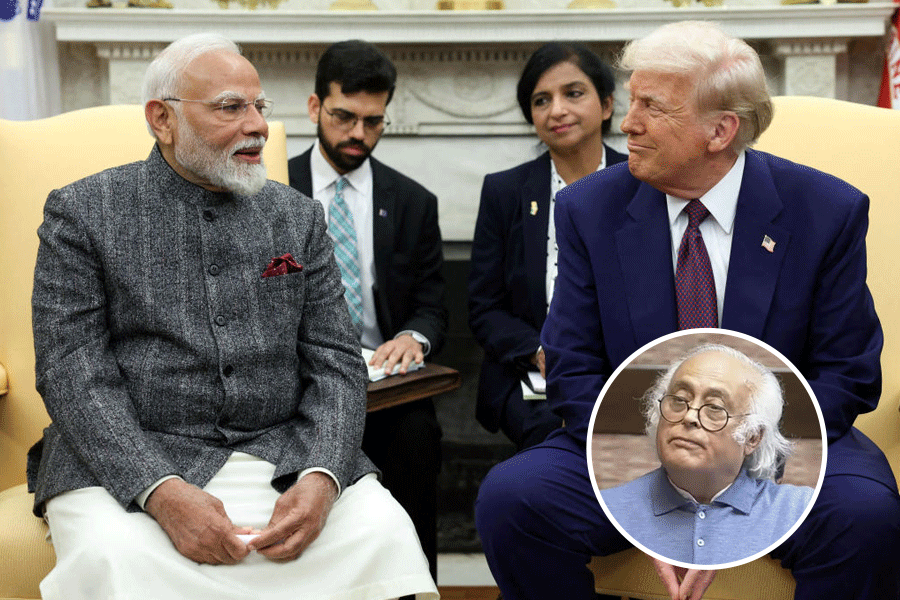CHHAUNK: ON FOOD, ECONOMICS AND SOCIETY
By Abhijit Banerjee
Juggernaut, Rs 899
George Bernard Shaw was likely thinking of a warm bowl of soup and the unshakeable joy it brings when he said, “There is no love sincerer than the love of food.”
Few things shape our existence and society as profoundly as food. Nations have been torn apart on account of tantalising promise of spices and culinary treasures. Our memories, too, are often flooded with tastes, sights, fragrances, and the clink of cutleries of a meal we had on a summer afternoon at a table overflowing with love. Our socio-political, cultural, economic and even existential realities are frequently shaped by and shape the ways we eat — mob lynchings or seemingly inconspicuous ideas of ‘differently dressed’ delivery men for ‘differently dressed’ food are manifestations of these.
In that context, Abhijit Banerjee’s Chhaunk (the sizzling blast of whole spices crackling in oil added to a curry) brings its own distinctive flavour, much like its namesake. This sequel to Banerjee’s 2021 cookbook, Cooking to Save Your Life (also illustrated by Cheyenne Olivier), is a collection of essays on economics, food, society and everything in between. Each essay comes paired with recipes — good table manners and social distinctions segue into savoury mango dishes, reflections on global warming lead to cucumber water and Vietnamese-inspired mango tea, while a discussion on restaurants brings a medley of chutneys to the table.
The history and the politics of food have always been convoluted, but this complexity multiplies further in the Indian context shaped by its diverse geographies and cultures. Just the ‘what’ doesn’t matter; the questions of ‘where’, ‘when’, ‘by whom’, and ‘for whom’ matter equally, if not more.
Banerjee’s essays revolve around such questions. Why does India, a country steeped in widespread poverty, hold such an aversion to being ‘too nice’ to its poor? Does the romanticisation of ‘Ma ke haath ka khaana’ reflect love, or is it another facet of deeply-ingrained patriarchy? Are our dietary habits truly our own, or do they reflect the familial environments we grow up in? Is saving and building investments and wealth as accessible to everyone as financial gurus will have you believe? How much does your community and background dictate your eventual career path? Are imprisonments (and the food served within those prisons) equally (un)fair? And, finally, is equality ever achievable, or will there always be those deemed ‘more equal’ than the rest?
Like most sources of pleasure and delight, our food hides stories of oppression and violence. Growing up, I watched my mother take pride, born of both spoken and unspoken expectations, in her never-ending double shifts: teaching at a day-boarding school and running a household, including cooking, for a large family. Separate cups for lower-caste labourers, rumour-mongering around eating practices of different religions, normalised extravagances of the ultra-rich in a nation where millions sleep hungry — the list of injustices goes on.
Warm and whimsical, Chhaunk tiptoes through the alleyways of pleasure and violence. Banerjee’s “alphabet of smells and tastes, of food words and words of appreciation” intermingle with his thoughts on the bigger plate, from recipes of inequality to climate change. Whether he speaks of how “Brahmins get to work in prison kitchens while the lowest castes are assigned toilet duties” or how “people in poor countries don’t
want to leave their homes unless those homes are burning from heat or from some local conflagration” or how India is “the stunting and wasting capital of the world”, the essays, often on heavy themes, have a tone so comforting it feels like the cajoling voice of your grandma offering you an extra scoop of your favourite dish.
Read this book as you stare at your open fridge while the ingredients stare back at you. Open a random page or maybe visit that “kalai daler khichuri[r]” recipe that was too tempting not to be bookmarked. Enjoy this book with a morning cup of tea, the words as comforting as the biscuit you dip into your cup. Turn to this book after a long, tiring day at work — perhaps frustrated by yet another ‘caste pride’ bumper sticker on the road or a colleague casually joking about women and their natural place behind a stove.
For when life feels like bland, boiled dal, all you need is a burst of flavour, a chhaunk.











